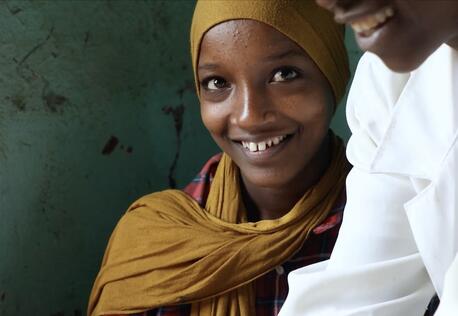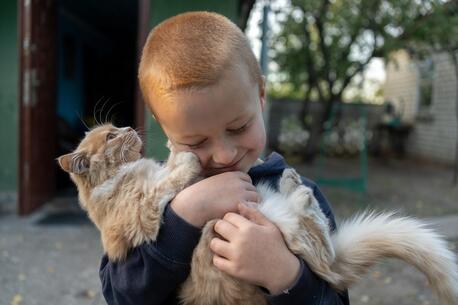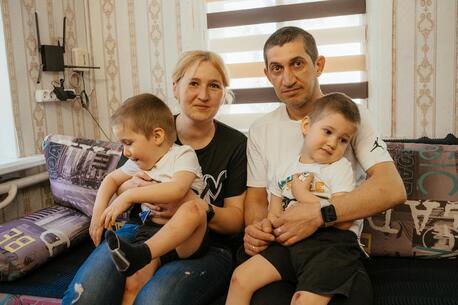
UNICEF Helps Children Stay Warm This Winter
As families in conflict zones brace for a harsh winter, UNICEF is working with partners to ramp up protection for children during the long, cold months ahead. More help is needed.
UNICEF is stepping up efforts to help children caught in humanitarian crises stay warm and dry as temperatures drop. For families already exposed to the trauma of war in places like Gaza, Lebanon and Ukraine, this will be the hardest winter yet.
Wherever children need winter support, UNICEF is there to help, delivering warm clothing and supplies — sweaters, hats, coats, boots, blankets, sleeping bags — to protect children from the cold, along with other essential interventions including cash assistance to help families prioritize their most urgent needs.
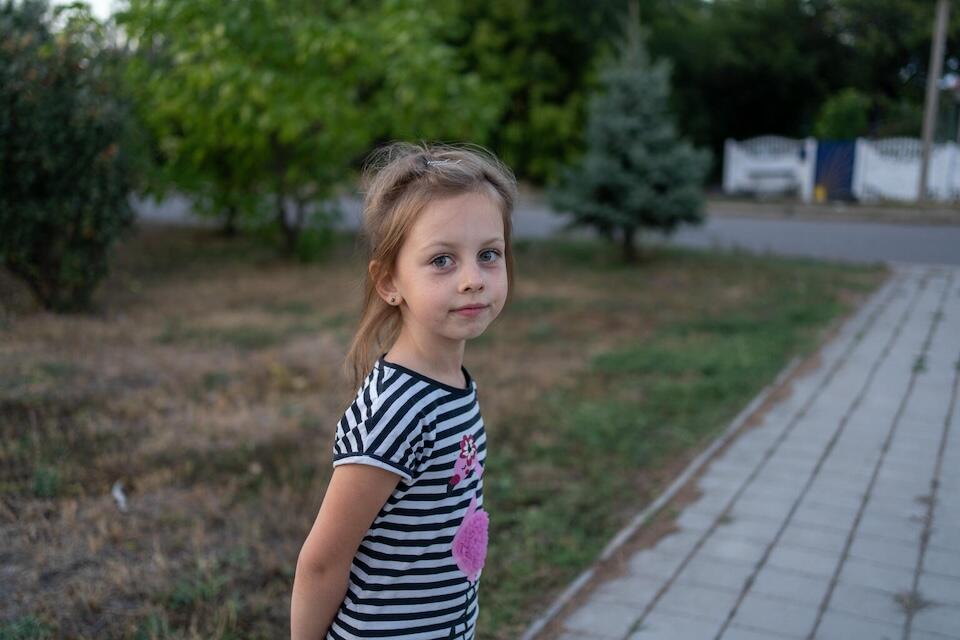
Protecting children from Ukraine's freezing temperatures
Children in Ukraine are facing their third winter since the escalation of the war in February 2022. More than 3.5 million people remain internally displaced. Forced out of their home in Myrnohrad near the front line, Daria and her husband and their children are preparing for a bitterly cold winter in an old rented house in Donetsk without running water.
"We may never go back. Everything will be destroyed," Daria says. In the past, "even without electricity, we could use the stove. My children were always well fed and the house was warm," she says wistfully. "Last winter was manageable, but we don't know what this winter will bring."
The family used cash assistance from UNICEF to buy coal and a 500-liter tank for water storage. "I cried the first week we were here," Daria says. "We're just not used to living like this, without even a toilet."
Learn more about UNICEF Ukraine's winter response.
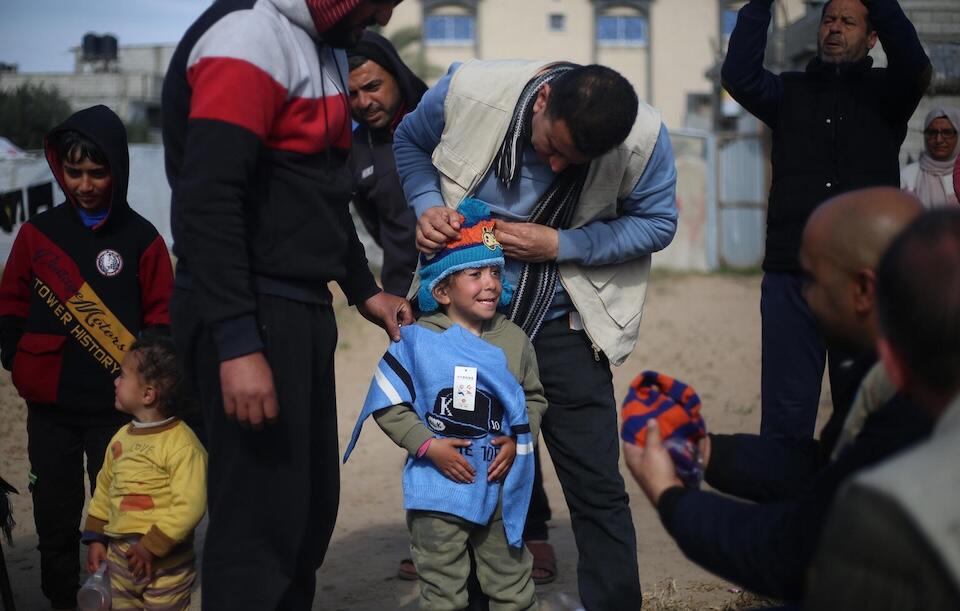
Ramping up urgently needed support for children in Gaza
The humanitarian situation in Gaza is growing increasingly precarious, primarily because of the ongoing bombardment and resulting infrastructure damage.
Around 1.9 million people — nearly Gaza's entire population — have been displaced, many multiple times, in the past 14 months. Children are living in tents without adequate access to safe water, sanitation or adequate protection from the elements. Malnutrition is on the rise, leaving children more vulnerable to disease outbreaks.
In addition to distribution of warm clothes and blankets, key interventions outlined UNICEF's winter response plan include:
- Enhancing shelter conditions to protect against cold and flooding, including sealing off kits and winterization kits
- Distributing heating equipment and facilitating access to appropriate fuel sources for safe indoor heating
- Establishing safe spaces for children in winterized tents or temporary caravans
Learn more about UNICEF's winterization plan in Gaza.
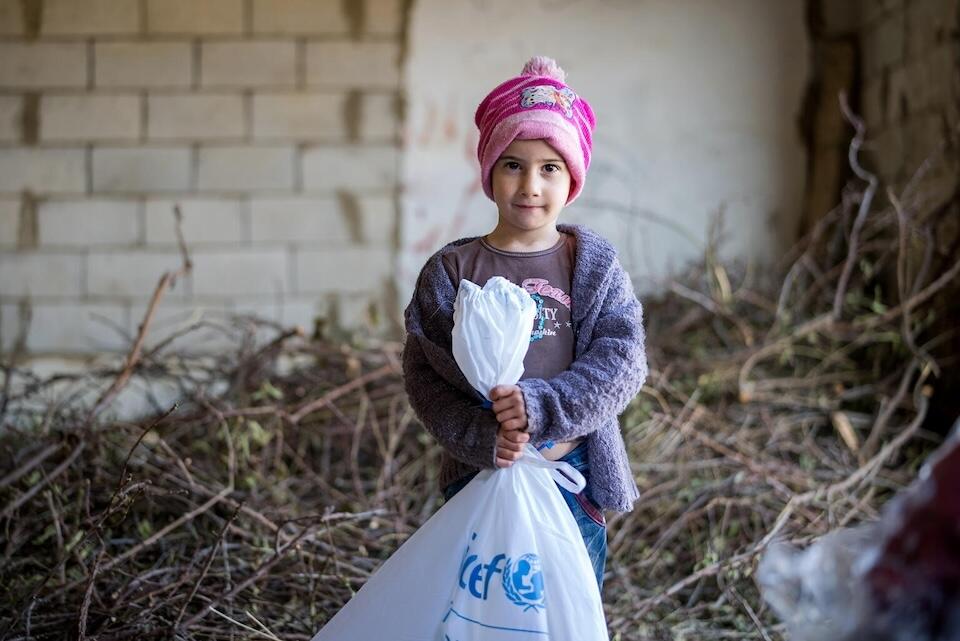
Winter assistance for internally displaced children and Syrian refugees in Lebanon
The escalation of conflict along the Lebanon-Israel border in September 2024 has led to the deadliest period and largest displacement surge Lebanon has seen in decades. The humanitarian crisis continues to expand, causing a devastating physical and emotional impact on children. An estimated 1 million people require urgent assistance.
UNICEF has been at the forefront of winter support efforts in Lebanon since the onset of the Syria refugee crisis in 2011; the goal of UNICEF's winterization plan is to meet the urgent needs of the most vulnerable internally displaced persons (IDPs) and Syrian refugees, both in shelters and on the move.
UNICEF's rapid winter response aims to deliver a 50/50 combination of cash assistance and in-kind support to 200,000 children and their families. Cash payments of $150 will be distributed to each household. Children will receive a unisex winter clothing kit containing items such as thermal sets, warm sweaters, puffball trousers, winter jackets, and woolen hats, scarves and mittens.
To provide young people in Lebanon with income-generating opportunities, UNICEF is enlisting their support in this year's winter response. In the past two months, young people who completed a vocational sewing program through UNICEF's skills-based Cash for Work (C4W) project have produced more than 4,000 sleeping bags for the internally displaced. Right now, 370 youth are hard at work preparing 5,100 winter kits for distribution to children and their families.
Learn more about UNICEF Lebanon's winterization program.
No child should be left out in the cold. Please donate today.
HOW TO HELP
There are many ways to make a difference
War, famine, poverty, natural disasters — threats to the world's children keep coming. But UNICEF won't stop working to keep children healthy and safe.
UNICEF works in over 190 countries and territories — more places than any other children's organization. UNICEF has the world's largest humanitarian warehouse and, when disaster strikes, can get supplies almost anywhere within 72 hours. Constantly innovating, always advocating for a better world for children, UNICEF works to ensure that every child can grow up healthy, educated, protected and respected.
Would you like to help give all children the opportunity to reach their full potential? There are many ways to get involved.



